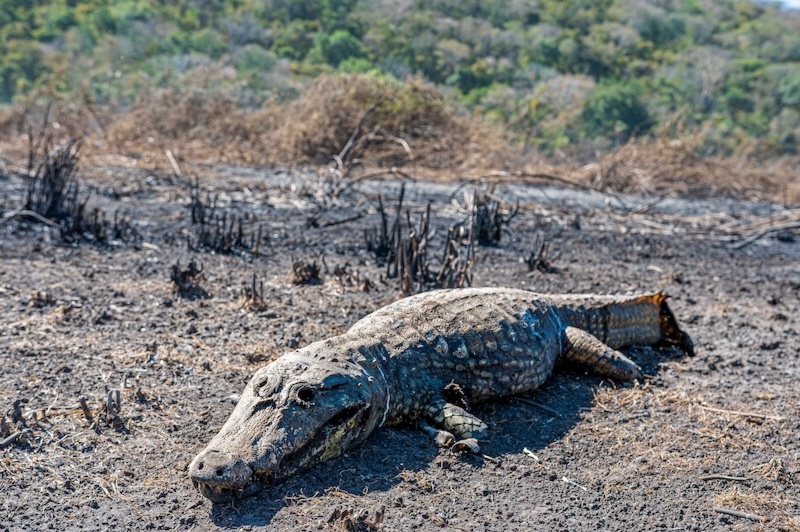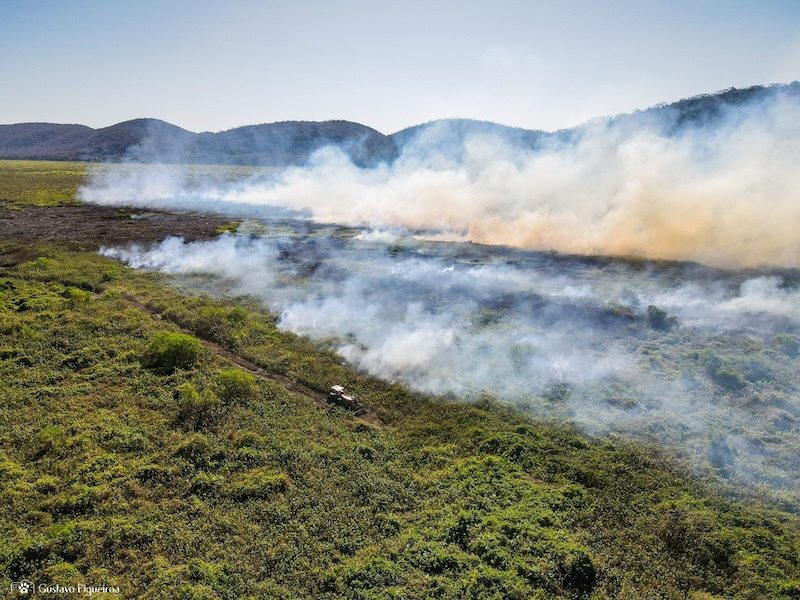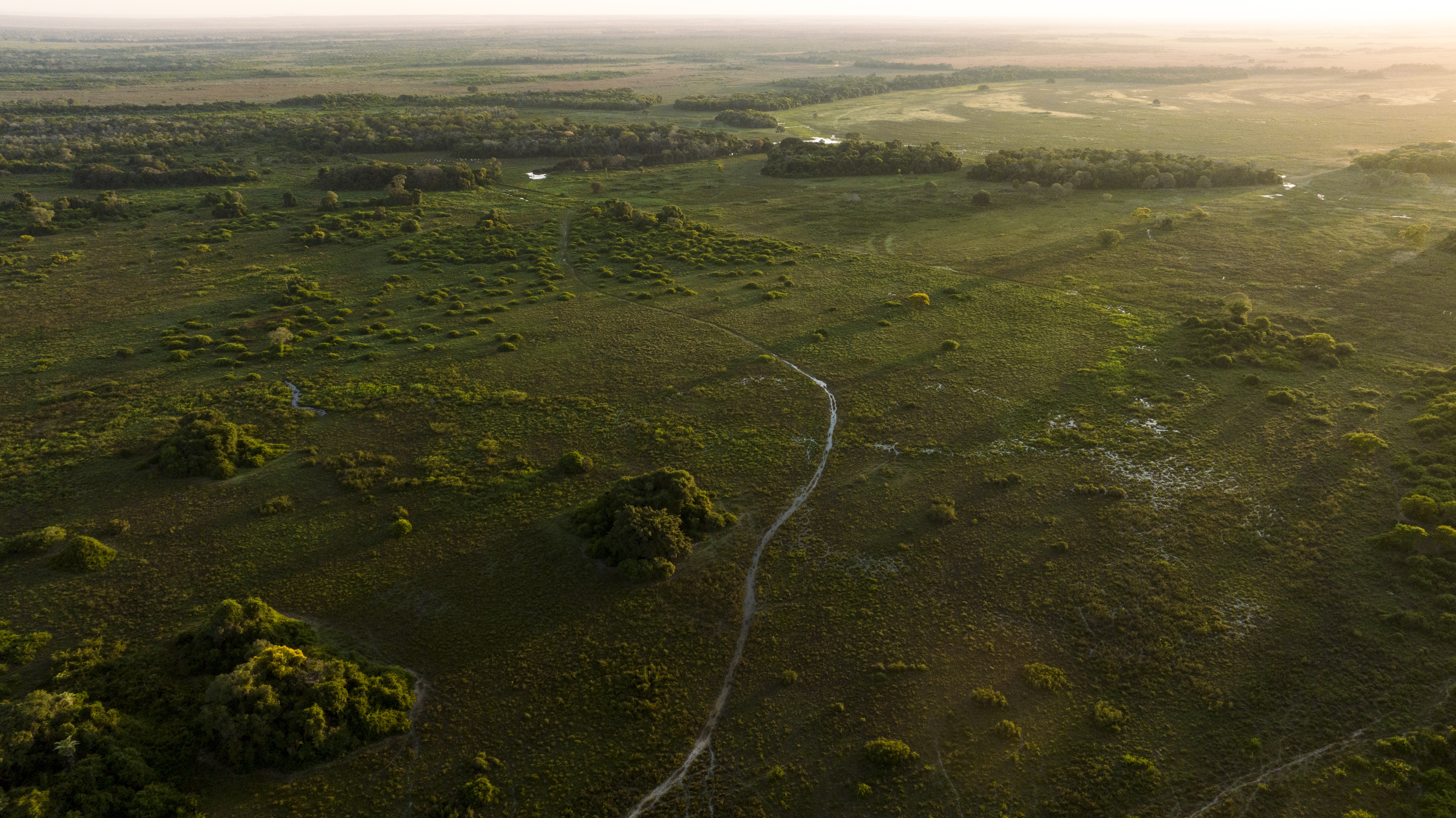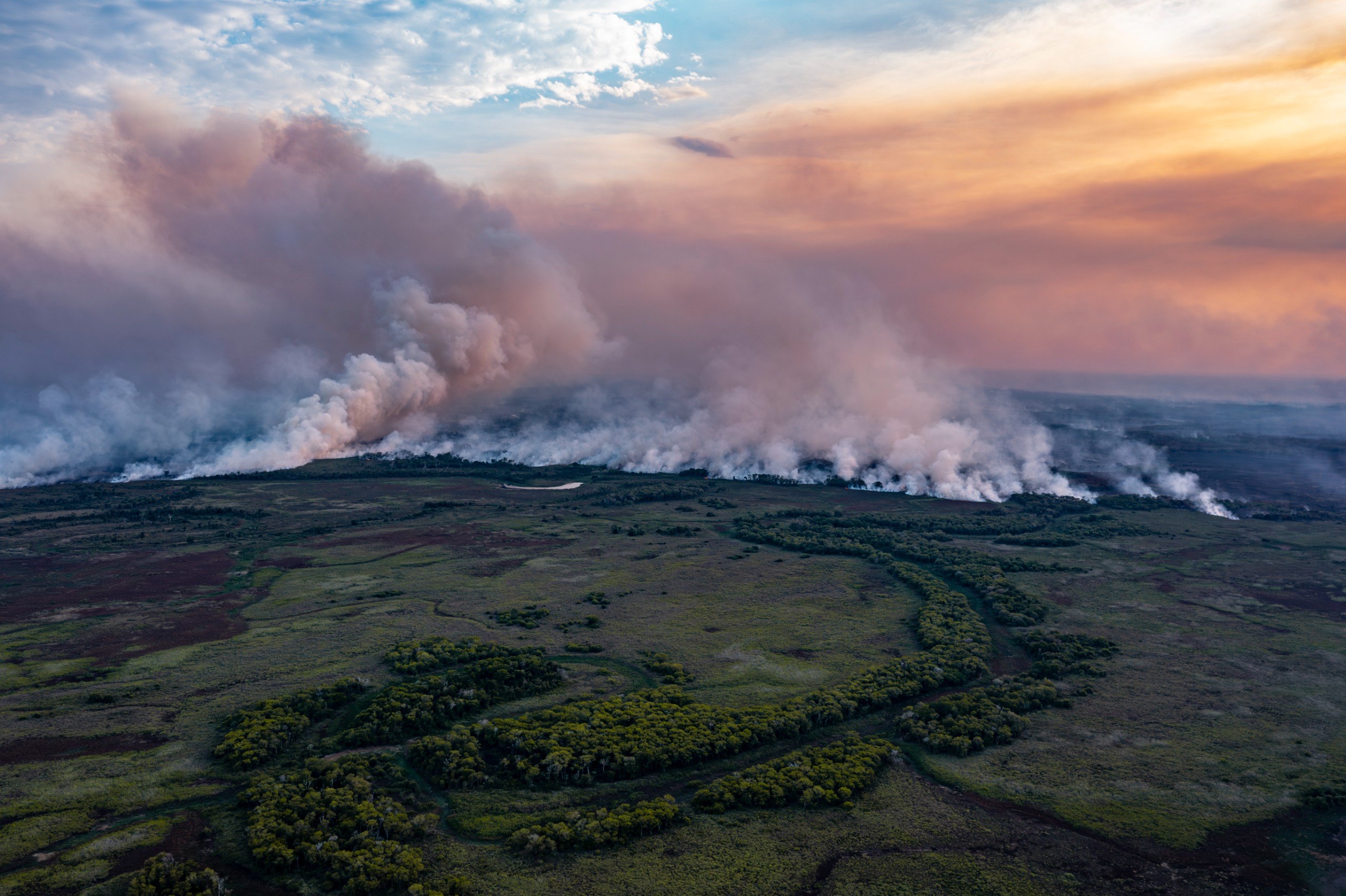
Pantanal fires underscore urgent need for international wetlands action
The world’s largest tropical wetland, the Pantanal, is ablaze. There are over 10x as many fires in this global biodiversity hotspot this year so far relative to 2023, and with reports of unprecedented drying of the Paraguay River, fears of another record-breaking fire year are rising.
The Pantanal can ill afford more fires now. It is still recovering from 2020, when fires accidentally and criminally set by people and worsened by the climate crisis killed 17 million wild vertebrates, destroyed nearly 4 million hectares and released more carbon emissions than Belgium did over the entire year.
EJF has today published a new briefing outlining the vital importance of wetlands for wildlife, for the climate and for all of us. Wetlands make up less than 6% of the Earth’s surface, but 40% of all known animal and plant species rely on them, including 30% of all fish species.
They also play an outsized role in tackling the climate crisis. For example, peatlands cover only 3% of the planet, but store a quarter of all its soil carbon. Across all wetlands, as many as 1 in 8 people make their livelihoods from them, and they provide clean water, storm protection, and myriad other direct benefits for us all.
This importance has not been matched by policy action to protect them, says EJF. Globally, 35% of natural wetlands were lost in just 45 years, from 1970 to 2015, a rate of destruction three times more intense than for forests. The climate crisis, agricultural expansion, invasive species and pollution are also key threats to the persistence of these irreplaceable ecosystems.
Even while wetlands around the world provide essential support to EU citizens every day, EU supply chains are driving wetland destruction on an industrial scale, according to EJF research. Over less than a decade, an area of the Pantanal over four times the size of Paris was converted to pasture to feed the EU market with beef and soy. Slave labour is prevalent in the Brazilian cattle industry, and violence against Indigenous peoples in the Pantanal and its outskirts is shockingly commonplace, says the NGO.
To end this downward cycle, EJF recommends that the scope of the EU Deforestation Regulation be expanded to cover wetlands, giving biomes like the Pantanal the protection they need. Today’s briefing outlines other key steps all governments should take now to stop wetlands as we know them from disappearing, from including wetland conservation in climate targets to recognising the essential contribution they make to human health.
Steve Trent, EJF CEO and Founder, said: “European leaders have an opportunity and a responsibility to step up for wetlands. The Deforestation Regulation will make a significant contribution to protecting the world’s forests, but without expanding its scope, the wave of destruction will just be pushed onto other ecosystems we also cannot afford to lose.”
“Wetlands are treasure troves of biodiversity, and many of the species they are home to are found nowhere else. This is reason enough to protect them alone, but we depend on wetlands too. If we want to tackle the climate crisis, keep safe from storms, and support lives and livelihoods, it starts with them. Every investment we make to protect and restore them now will be paid back many times over. I urge every government across our shared planet to commit to defending them now. When wetlands thrive, so do we.”

ENDS
Notes to editor
EJF works internationally to inform policy and drive systemic, durable reforms to protect our environment and defend human rights. We investigate and expose abuses and support environmental defenders, Indigenous peoples, communities, and independent journalists on the frontlines of environmental injustice. Our campaigns aim to secure peaceful, equitable, and sustainable futures.
Our investigators, researchers, filmmakers, and campaigners work with grassroots partners and environmental defenders across the globe. Our work to secure environmental justice aims to protect our global climate, ocean, forests, and wildlife and defend basic human rights. For more information or to speak to one of our expert analysts, please contact media@ejfoundation.org
SIGN UP FOR OUR EMAILS AND STAY UP TO DATE WITH EJF

